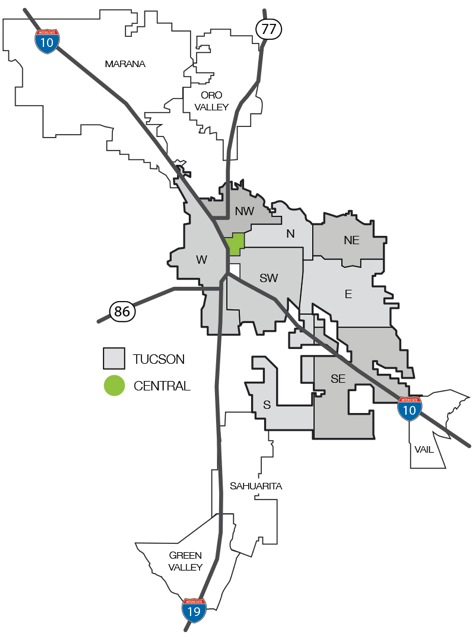Know Your Credit Score Before You Buy
Do you know your credit score right now? You don’t want to do all the legwork required to find the home you want, only to realize the lender won’t qualify you.
Check your credit before you head to the lender to ask for a mortgage when you’re ready to buy a home. Here is a short checklist to help you accomplish this:
- Get an estimate of your score with a service like Credit Karma, Credit Sesame, or Credit.com. All of these sites pull scores from one or more of the 3 major credit bureaus (Experian, TransUnion, and Equifax)
- You also want to check your credit report to fully understand what a lender will see. Yes, your credit report is different from your credit score! You can get a free copy of your credit report from each of the three bureaus once per year at AnnualCreditReport.com.
While the credit score is a single number, the credit report acts as a summary of your credit history and the factors present on your report help determine your score. You’ll see all your lines of credit and open accounts on your report. You can also see judgments, liens, collections and bankruptcies filed against you over the last 7 years.
Make sure all the information presented here is accurate. Mistakes on your report can drag down your credit score. If you find an error, you need to contact the three credit bureaus and file a dispute.
What Do Lenders Look for In Your Credit Score?
You know what your score is. But knowing the number doesn’t do you much good without context.
Credit scores exist on a scale from 300 on the low end to 850 on the high side. 850 is considered a perfect credit score — but thankfully, you don’t need be perfect to buy a home.
On the high end, any score of 740 or higher will allow you to not only qualify for a mortgage but also the best interest rates offered by lenders. The exact rate you get will depend on a variety of other factors in your financial situation, like how much cash you put down on the home and your income-to-debt ratio. For a jumbo mortgage loan you will typically need a score of 720 or higher.
If your score falls into the 620 to 740 range, you’ll probably still qualify for the mortgage loan you need to buy a home. But you may not get the exact loan you want, and you won’t likely receive the best interest rates.
The lower your score, the more difficult it will be to qualify for a conventional loan from a lender. If your score falls below 620, it’s possible that you may not qualify for a loan at all.
You could, however, get an FHA loan. The minimum credit score required for this government-backed loan is 580. And if you fall below this range? It may be time to take a step back and look at what you can do to improve your credit before you buy.
Why Your Credit Score Matters So Much
Let’s say your credit score is in the mid-600s. That’s probably good enough to get an FHA loan — and with the minimum required score for conventional loans set at 620, you have a good chance of being approved for a regular mortgage as well.
So why worry about your score if you meet this minimum?
While you may be able to get a loan, it might not be the one you want. Lenders can still deny you for a conventional loan depending on other factors like your income and debt ratio. More importantly, the loan could come with a much higher interest rate.
With a lower credit score, you might only qualify for an interest rate that is 1 or 2 percentage points higher than the lowest rates advertised.
A better credit score tells the lender you are more financially responsible — and therefore less risky to the lender, since they see you as less likely to stop paying your loan.
And lenders reward that financial responsibility and lower risk by offering lower interest rates to borrowers with better credit scores.
The interest rate is basically the fee you pay to borrow money. The higher the rate, the higher the fee you pay — which is why a less-than-stellar credit score can literally cost you thousands of dollars more over the life of your loan.
When you talk about a loan as big as a mortgage, even 1 or 2 percentage points on your interest rate makes a significant difference. The average person borrows $222,061 then they buy a home. Let’s use that as our example and say you borrow that much on a 30-year mortgage.
If you can secure an interest rate of 4%, over the life of the loan, you’ll pay $159,737 in interest (that’s on top of the amount you borrowed that you need to repay). But if your credit score is on the lower end, you might have to pay 5% instead of 4%. That’s just one percentage point difference. But with a 5% interest rate, you’d pay $207,271 in interest over 30 years.
That means you’d pay $47,000 more! That’s why your credit score matters so much, and why it’s worth doing what you can to raise it before buying a home (even if you could technically qualify for a mortgage with a lower score).
To better see how interest rates affect the cost of the loan, take a look at the chart below.
| Interest Rate | Loan Amount | Monthly Payment | Interest Paid in Total | Total Cost of Mortgage |
| 3.0% | $400,000 | $1,686.42 | $207,109.81 | $607,109.81 |
| 3.5% | $400,000 | $1,796.18 | $246,624.35 | $646,624.35 |
| 4.0% | $400,000 | $1,909.66 | $287,478.03 | $687,478.03 |
| 4.5% | $400,000 | $2,026.74 | $329,626.85 | $729,626.85 |
| 5.0% | $400,000 | $2,147.29 | $373,023.14 | $773,023.14 |
This table assumes a 30-year fully amortizing fixed rate loan.
How to Improve Your Credit Score Before Buying a Home
The better your score, the more options you’ll receive when choosing a particular mortgage. And of course, you’ll be in a better position to get that lower interest rate you’re after.
Whatever your reason, know that you have the power to improve your score. You can take specific actions over time to get your credit score into a range that provides more benefits and flexibility when it comes to buying a home.
The fastest credit score fix will likely come from lowering your credit utilization ratio. Credit utilization refers to the amount of credit you use out of what’s available to you. If you have two credit cards with limits of $2,000 and $4,000, for example, your total credit limit is $6,000. And if you carry a balance of $3,000 across both cards, then your credit utilization ratio is 50%.
So how do you lower that percentage? By paying down existing debts, like credit card balances. You should aim to keep your credit utilization on revolving credit to 30% or lower.
You can also improve your score by making all your payments on bills, balances, and other debts on time and in full. Payment history makes up a big chunk of how your score gets calculated. Getting payments in before they’re due is so simple, but it makes a big impact.
You don’t need the very best credit score to buy a home, but you will probably need a score that falls into the good to excellent range if you want a conventional loan and an attractive interest rate. You may be able to secure a loan with a lower credit score if you choose an FHA mortgage instead.
Either way, taking the above steps and doing what you can to improve your credit score, whatever it is, is so important. A higher credit score allows you to qualify for the best mortgage available to you — and one that comes with the best available interest rate, which can save you tens of thousands of dollars over time.



